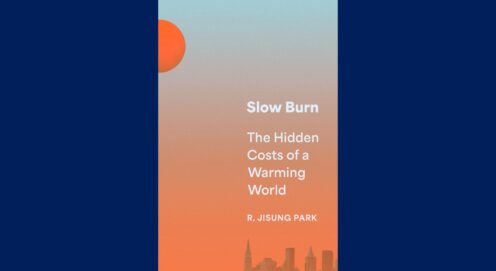RESEARCH
The Data for Equitable Justice Lab
The Data for Equitable Justice Lab gives students in the Master of Science in Social Policy + Data Anlytics for Social Policy Certificate program (MSSP+DA) an opportunity to analyze some of today’s most important social issues through data and, with faculty support, create a product for audiences well beyond our classrooms and campus.
With guidance from the lab faculty, students develop a project – either individually or as part of a team – to examine a contemporary social policy or political issue through or on data or digital technology. Through these projects students produce an op-ed, blog post, podcast, academic article, short film, or other product that creates or contributes to contemporary discourse.
Research Projects
The Data for Equitable Justice Lab offers students the opportunity to develop a project that connects their own interests to their classroom learning to impact public policy and the conversations that surround them. View examples of prior students’ projects below.
Examining Colorism Among Female African American Exotic Dancers in Philadelphia and Neighboring Counties
Rose Brown
In this novel study, SP2 MS in Nonprofit Leadership student Rose Brown sought to understand colorism – the impact of skin tone on how someone is treated – among a highly vulnerable population. She visited exotic dance clubs in and around Philadelphia, speaking to 50 dancers who shared their experiences with discrimination by customers, management, and fellow dancers.
India’s #MeToo
Shweta Chopra & Sanjana Dalmiya
While US media coverage of the #MeToo movement has been focused on sexual assault and harassment in the United States, the underlying problems know no boundaries. Shweta Chopra and Sanjana Dalmiya conducted a thorough examination of the #MeToo movement in India, poring through hundreds of news articles to understand similarities and differences between these critical movements in the US and India.
The Legacy Project: Celebrating the Pan-Asian Professionals in the Social Work Field
Julia Hah
Noting the underrepresentation of Asian-Americans in the social work field, Julia Hah undertook a qualitative study to understand their unique challenges to a social work career. In interviewing three social workers, she discovered a mix of familial and societal pressures that disproportionately push Asian-Americans toward higher paying, higher prestige careers which she masterfully documented in this presentation.
The Legacy Project: Celebrating the Pan-Asian Professionals in the Social Work Field
The Effect of Medicaid Expansion on Health Service Accessibility
Xiaorui (Mia) Hou & Xiaoxuan He
Medicaid expansion is among the most significant and controversial efforts contained in the Affordable Care Act to improve access to quality healthcare among vulnerable populations. In this study, Mia and Xiaoxuan take advantage of the natural experiment embedded in Medicaid expansion’s roll-out to assess its impact on the percent of people who did not see a doctor because they could not afford care.
The Effect of Medicaid Expansion on Health Service Accessibility
Implicit Bias Research in Police Training
Michelle Johnson
“Implicit bias” has become ubiquitous as a term to describe part of the problem underlying strained relationships between law enforcement and racial minority communities, particularly the black community, but its use and source of a solution has gone largely unscrutinized. SP2 Master of Social Work student Michelle Johnson dove into the research and found that current approaches to reducing implicit bias are unlikely to have any impact on excessive force by law enforcement or relationships between police departments and minority communities more generally.
Quantifying the Unknown: Data Limitations for Youth with Experience in Foster Care Attending Post-Secondary Education
Kathryn Kirkman
The Pennsylvania state legislature is once again considering funding the college educations of youth with experience in foster care but understanding the potential scope and cost of this effort is a hefty challenge. Luckily, it’s one that Kathryn Kirkman is eager to take on. Using the limited data available on the topic, she created robust estimates of the potential cost of this legislation and, in doing so, created a guide for others looking to create similar projections in other states and in the future.
Quantifying the Unkown: Data Limitations for Youth with Experience in Foster Care Attending Post-Secondary Education
What’s In a Degree? How Graduate Programs Shape Career Decision Making for the Public Sector
Madeleine O’Brien
Many students seek public service degrees only to change their minds partway through their program. Madeleine O’Brien surveyed and interviewed nearly 200 students and alumni to understand what motivations brought them into the program and how those ambitions and priorities change during their academic careers, with lessons for programs that seek to increase their policymaking footprint.
Quantifying the Unkown: Data Limitations for Youth with Experience in Foster Care AtWhat’s In a Degree? How Graduate Programs Shape Career Decision Making for the Public Sector
Ten Years of Affirmative Action in Ecuador: a failure or success for post-neoliberal policies?
Hannah Watson
Ecuador has moved sharply away from neoliberal economic policies over the last ten years, with particular effort toward ensuring greater opportunities for indigenous groups through affirmative action policies. Hannah traveled to Ecuador to meet with representatives of two indigenous groups to examine the effects of those affirmative action policies and to explore next steps toward increased opportunity toward those groups.
(Un)Civil Education for Civic Engagement: The Case of Florida
Christine Pappas
In November, 2018 Florida voters overwhelmingly approved Amendment 4, which returned voting rights to the state’s 1.4 million individuals released from prison after felony convictions. This is a huge leap forward, but state legislators are already trying to undermine it. Christine Pappas walked us through the historic referendum in the context of a history of racially motivated disenfranchisement and offered a guide for how every Floridian can help ensure universal voting rights.
(Un)Civil Education for Civic Engagement: The Case of Florida
The Post-Incarceration Cycle of Poverty
Anna Worrell & Andreana Barefield
It is no secret that incarceration impacts an individual’s life long after a sentence has officially ended. Anna and Andreana examined how the criminal justice system perpetuates poverty and, in doing so, increases the probability of re-incarceration. They delved into the excessive fees paid by those on probation and parole, including “supervision fees” paid by anyone who sees a probation and parole officer, and the punitive and life-destroying fines should someone fall behind. Stay tuned for the upcoming podcast devoted to this topic!
News
Alumni
04/18

Alumni Q&A | Terri Broussard Williams, NPL ’20
An award-winning lobbyist, nonprofit executive, and public speaker, SP2 alumna and Dean’s Alumni Advisory Board member Terri Broussard Williams, NPL ’20, is head of state and local government relations at financial services firm Edward Jones.
News
Faculty & Research
04/10

SP2’s R. Jisung Park publishes “Slow Burn: The Hidden Costs of a Warming World”
In “Slow Burn: The Hidden Costs of a Warming World,” Dr. R. Jisung Park, an assistant professor at Penn’s School of Social Policy & Practice (SP2), encourages us to view climate change through a different lens: one that focuses less on the possibility of mass climate extinction in a theoretical future, and more on the everyday implications of climate change here and now.
News
Faculty & Research
04/09

SP2 ranked #8 among Schools for Social Work by U.S News & World Report
SP2 has been named #8 among Schools for Social Work in the 2024 U.S. News & World Report Best Graduate Schools rankings. This marks SP2’s highest ranking ever, and the second time that the School has appeared in the list’s top 10.